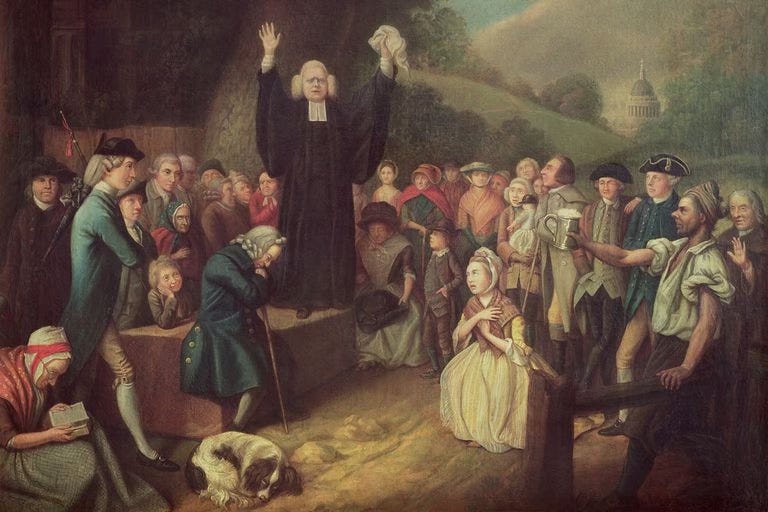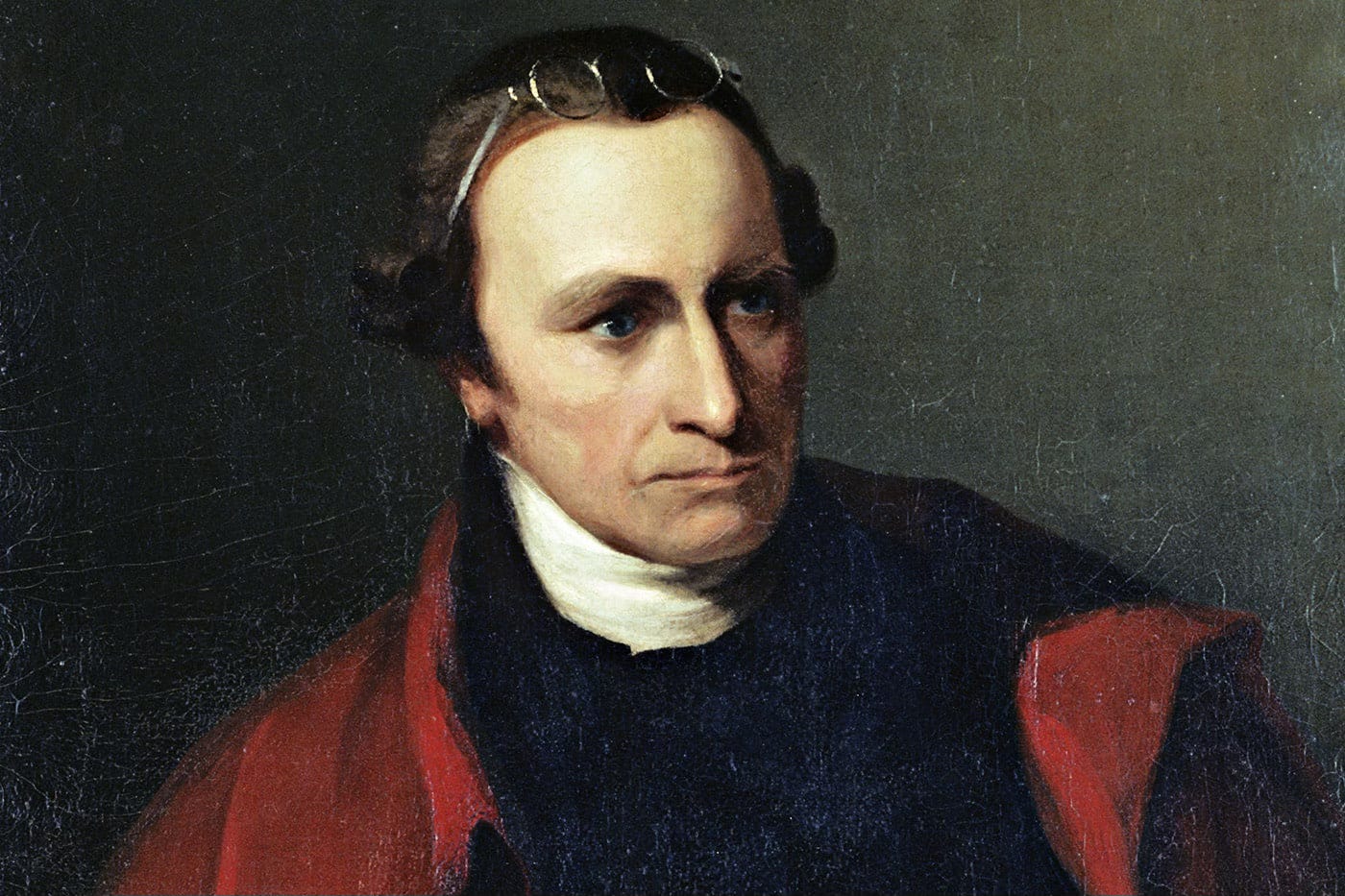Christianity and the American Revolution: A Spiritual Awakening
Faith and Freedom Intertwined
The American Revolution wasn’t just a war for independence; it was also a spiritual awakening that reshaped the hearts and minds of the colonists. While most history books focus on battles, politics, and economic causes, Christianity played a central role in inspiring and guiding the revolution. Faith and freedom intertwined, giving birth to a nation built on the principles of God-given rights, justice, and moral conviction.
What role did Christianity play in shaping the American Revolution? Let’s journey back to the 18th century and explore how a spiritual awakening laid the foundation for a revolution that changed the world forever.
1. The Great Awakening: A Precursor to Revolution
Before the revolution, America experienced a profound religious revival known as The First Great Awakening (1730s-1740s). This movement swept across the colonies, rekindling faith and challenging the religious complacency of the time.
The Rise of Revivalist Preachers
Key figures like Jonathan Edwards and George Whitefield became prominent voices in this spiritual revival.
Jonathan Edwards: Known for his fiery sermon, “Sinners in the Hands of an Angry God,” Edwards called for repentance, urging people to seek a direct and personal relationship with God.
George Whitefield: A charismatic preacher, Whitefield traveled throughout the colonies, delivering emotional sermons to crowds as large as 30,000. His message of equality before God resonated deeply with ordinary colonists.
A Moral Awakening
The Great Awakening instilled new ideas that would later fuel the revolution:
Equality: All men were seen as equal in the eyes of God, challenging the social hierarchies of the Old World.
Moral Conviction: Colonists believed they had a divine responsibility to fight against tyranny and injustice.
Personal Responsibility: Just as individuals were accountable for their own salvation, they began to believe they were responsible for shaping their future and resisting oppression.
This movement empowered ordinary people to question authority, a mindset that naturally carried over into their resistance against British rule.
2. Christian Influence on Revolutionary Ideals
The core ideals of the American Revolution—liberty, natural rights, and justice—were deeply influenced by biblical principles.
Natural Rights and Divine Law
The belief in God-given rights was central to the revolutionary cause. Leaders like John Locke argued that “life, liberty, and property” were natural rights granted by God, not governments. These ideas became the foundation of the Declaration of Independence:
“We hold these truths to be self-evident, that all men are created equal, that they are endowed by their Creator with certain unalienable Rights.”
Romans 13 and the Duty to Resist Tyranny
Revolutionaries wrestled with the teachings of Romans 13, where the Apostle Paul instructed Christians to obey governing authorities. However, many colonial preachers argued that British rule had become tyrannical and unjust, violating God’s divine law. Resisting tyranny, they said, was not rebellion but obedience to a higher moral authority.
The Biblical Exodus
Colonists often compared themselves to the Israelites fleeing Egyptian bondage. Ministers invoked the story of Moses leading God’s people to freedom, drawing powerful parallels to the colonists' struggle against British oppression.
3. Faith Leaders in the Revolution
Christian ministers played a critical role in rallying support for independence. Known as The Black Robe Regiment, these pastors preached fiery sermons encouraging resistance to British rule and even took up arms alongside their congregations.
Key Figures
John Witherspoon: A Presbyterian minister and signer of the Declaration of Independence, Witherspoon argued that faith and freedom were inseparable. He once declared:
“There is not a single instance in history in which civil liberty was lost and religious liberty preserved entire.”
Samuel Cooper: A Boston pastor who used his pulpit to inspire revolutionary leaders like John Adams and John Hancock.
Peter Muhlenberg: A minister who famously preached a sermon declaring, “There is a time to pray and a time to fight!” before leading troops into battle.
These men of faith were not just spiritual leaders—they were patriots who guided their congregations through the moral and spiritual challenges of war.
4. Christian Rhetoric in Revolutionary Writings
The influence of Christianity is evident in the writings and speeches of revolutionary leaders.
The Declaration of Independence
Thomas Jefferson’s words reflect the colonists’ belief in divine justice:
“The Laws of Nature and of Nature’s God”
This phrasing emphasized that their cause was morally and spiritually justified.
Patrick Henry’s Speech
Patrick Henry’s famous cry, “Give me liberty, or give me death!” was infused with Christian rhetoric. He compared the colonists’ struggle to biblical themes of sacrifice and martyrdom, declaring that God’s justice would prevail.
Biblical Imagery
Leaders frequently referred to America as a “New Israel,” a land chosen by God to be a beacon of freedom. They saw themselves as God’s instruments in creating a nation where liberty and faith could flourish.
5. The Role of Prayer and Providence
Throughout the revolution, leaders turned to prayer and relied on God’s providence to guide their cause.
The Continental Congress
The First Continental Congress began its sessions with prayer, seeking divine guidance as they made critical decisions. Leaders like John Adams and Benjamin Franklin openly acknowledged their reliance on God’s wisdom.
George Washington’s Faith
General George Washington, often called the “Father of Our Country,” was deeply influenced by his faith. He frequently prayed for God’s favor and attributed victories to divine intervention.
During the winter at Valley Forge, Washington’s troops faced unimaginable hardship. Many accounts describe Washington kneeling in the snow, praying for God’s strength and guidance.
The miraculous survival of Washington and his men during the Crossing of the Delaware was seen as a sign of divine providence.
Washington later declared:
“It is impossible to rightly govern the world without God and the Bible.”
6. Religion and Unity During the War
Christianity also served to unify the colonies during a time of great division.
Churches became hubs for organizing resistance, fostering community, and spreading revolutionary ideals.
Chaplains played an essential role in the Continental Army, offering spiritual guidance and moral support to soldiers.
Diverse denominations—Anglicans, Presbyterians, Baptists, and Congregationalists—set aside differences to focus on the shared principles of liberty and justice.
This spiritual unity strengthened the resolve of colonists to persevere in their fight for independence.
7. Post-Revolution Impact: A Nation Under God
The spiritual foundation laid during the American Revolution shaped the character of the new nation.
Religious Freedom
The revolution led to the establishment of religious freedom, enshrined in the First Amendment:
“Congress shall make no law respecting an establishment of religion, or prohibiting the free exercise thereof.”
This principle ensured that faith could flourish freely, becoming a defining feature of American life.
A Moral Foundation
Christian values continued to influence the moral and ethical framework of the new government. Leaders like John Adams believed that the success of the republic depended on the virtue and morality of its citizens:
“Our Constitution was made only for a moral and religious People. It is wholly inadequate to the government of any other.”
Conclusion: The Spiritual Roots of Liberty
The American Revolution was more than a political conflict; it was a spiritual awakening that inspired colonists to fight for their God-given rights. Faith and freedom intertwined to form the foundation of a nation built on justice, liberty, and moral conviction.
As we reflect on this period of history, we are reminded that the principles of faith and freedom are inseparable. The revolution’s leaders believed they were guided by divine providence, and their legacy challenges us to uphold the same values today.
“Where the Spirit of the Lord is, there is liberty.” – 2 Corinthians 3:17
Are you Subscribed?
Did you enjoy learning about the spiritual awakening that shaped the American Revolution?
Share this post with friends and family to celebrate America’s faith-filled heritage.
Subscribe to our blog for more inspiring stories about the people, places, and ideas that make America great.
Join the conversation: What role do you think faith plays in preserving freedom today?
Let’s keep America’s spirit of liberty alive—one story at a time!












